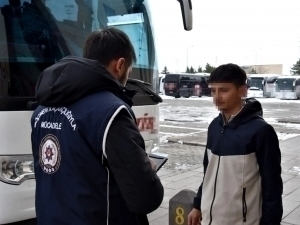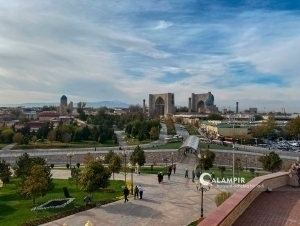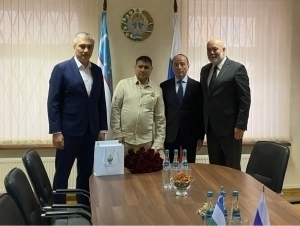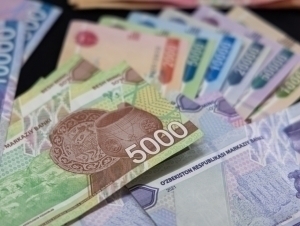Explosions continue in mourning Russia, MP who called Siberia the land of Uzbeks expelled, salaries in Uzbekistan increase, state debt continues to grow – Midweek
Review
−
04 June 2025 10482 11 minutes
Russia has been rocked by a series of explosions in recent days. The loss of several key military aircraft has left the country reeling, and now the U.S. Navy has reportedly inflicted further damage on the strategically important Crimean Bridge.
A Russian lawmaker who referred to Siberia as "the historical land of Uzbeks" has been expelled from the Communist Party. Reports suggest that he may have already left the country.
In Kazakhstan, a government official blamed Uzbekistan for the recent spike in potato prices. Meanwhile, tensions persist between Russian President Vladimir Putin and Belarusian leader Alexander Lukashenko over the issue.
Salaries in Uzbekistan have risen, but they remain significantly lower compared to neighboring Kazakhstan. Although the country’s external debt has now surpassed \$35 billion, the Minister of Economy and Finance has described the level as moderate.
QALAMPIR.UZ’s Midweek program presents an overview of major developments from the first half of this week.
Mourning and the explosion of the Crimean Bridge – what is Ukraine doing in Russia?
The world was shocked by a covert operation on June 1, during which Ukrainian forces reportedly bypassed Russian security to carry out a strike. It is believed that Ukraine was also involved in two major railway incidents in Russia that occurred around the same time. Before the country could recover from these events, the Security Service of Ukraine (SBU) allegedly struck again—this time targeting the Crimean Bridge.
Despite being heavily protected from all directions—air, land, and sea—the Crimean Bridge has now been attacked for the third time in three years. The most recent strike occurred before the national mourning period for a deadly train accident in Russia’s Bryansk region had even concluded. From June 2 to June 4, Russia was in mourning over the crash, but on June 5, the bridge was hit.
Reports indicate that the plan to attack the bridge had been in preparation for several months. At approximately 5:00 a.m., the underwater support of the structure was damaged with the equivalent of 1,100 kilograms of TNT.
The operation was reportedly overseen by Lieutenant General Vasyl Malyuk, head of Ukraine’s Security Service. According to Malyuk, Ukrainian operatives had previously approached the bridge in 2022 and 2023, and this time they carried out the attack from underwater. He emphasized that the bridge is considered a “legitimate military target” as it serves as a logistical route for Russian troop supplies.
In response to the incident, the Sevastopol Road and Transport Infrastructure Development Directorate announced a suspension of sea passenger transport. The route across the bay was also closed.
The Crimean Bridge, which has come to symbolize Russia’s annexation of Crimea, is the country’s longest bridge at 19 kilometers. The road section was opened in May 2018, while train services began operating in December 2019. According to Malyuk, this was not the first Ukrainian attempt to destroy the bridge. A fire occurred in October 2022, and the bridge was also targeted in July and August 2023. On August 12, at around 1:00 p.m., Ukrainian forces reportedly struck the bridge with an S-200 missile.
Where is the deputy who said, “Siberia belongs to the Uzbeks?”
Khalid Tagi-Zadeh, a deputy elected to the Duma of the Khanty-Mansiysk Autonomous Okrug from the Communist Party of the Russian Federation, stirred controversy after declaring that Siberia is the historical homeland of the Uzbeks. His remarks were made during a discussion on demographic trends among the region's indigenous population and the increasing migration of Uzbek citizens to Siberia.
“The historical Siberian Khanate—Kuchum Khan ruled here, and he was one of the Uzbek rulers from the Shaybanid dynasty, that is, the Khanate of Bukhara. Maybe today’s migrants are returning to their historical homeland?” Tagi-Zadeh said.
The statement sparked backlash from Russian activists, some of whom viewed it as an expression of separatism disguised as a call for “restoring historical justice.” Sergei Kolyasnikov condemned the remarks as an attempt to lay the groundwork for territorial claims. Roman Antonovsky, a prominent Moscow PR specialist, also criticized the deputy’s words, calling them “a clear example of why certain rights of naturalized migrants should be limited.” Antonovsky and several other activists argued that individuals like Tagi-Zadeh should be barred not only from state institutions but from political activity altogether, even demanding his deportation from Russia.
Shortly afterward, it was announced that Tagi-Zadeh had been expelled from the Communist Party. However, the official reason given for his expulsion was a violation of party discipline that allegedly occurred several years earlier. Yuri Afonin, Deputy Chairman of the Communist Party’s Central Committee, disavowed the deputy’s remarks, stating that Tagi-Zadeh was expressing a personal opinion that in no way reflected the party's official stance.
Mikhail Matveev, a Communist Party deputy in the State Duma, offered even harsher criticism, labeling Tagi-Zadeh a provocateur and likening his comments to the rhetoric of a foreign agent.
“This man is a provocateur. He was expelled from the party and no longer has anything to do with us. His foolish statements are entirely personal. Moreover, his comments were made during a discussion about demographic issues among indigenous peoples. This is an attack on Russia as a whole—an attempt to replace indigenous groups with migrants. The claim that Uzbeks have historical rights to Siberia reads like a scripted narrative written by someone else,” Matveev said.
For context, Khalid Tagi-Zadeh was born on November 15, 1978, in the city of Sumgait, Azerbaijan SSR. He is Azerbaijani by nationality. In 2001, he graduated from the Siberian Federal University with a degree in forensic chemistry. He also studied at the military faculty of the Siberian Aerospace Academy named after S.A. Reshetnev.
From 2019 to 2021, Tagi-Zadeh served as a deputy of the Megion City Duma in its sixth and seventh convocations, leading the Communist Party faction. Since 2021, he had held a seat in the Duma of the Khanty-Mansiysk Autonomous Okrug—Ugra as part of the seventh convocation. Following his expulsion from the party, unconfirmed reports have suggested that Tagi-Zadeh may have already left Russia.
Is Uzbekistan to blame for the potato problem?
Kazakhstan's Minister of National Economy, Serik Jumangarin, has attributed the recent rise in potato prices in the country to poor harvests not only in Kazakhstan but also in neighboring countries, including Uzbekistan, Belarus, and Russia.
“The law of supply and demand is at play here. There were issues with the potato harvest — there was no yield in Belarus, Russia, or Uzbekistan. In Kazakhstan, we had created sufficient reserves last year. But farmers also needed to profit, so we did not restrict potato exports for a while. There is no shortage of potatoes, but prices have gone up,” Jumangarin said.
According to the minister, the government faced two choices: either to cap potato prices, which could have discouraged farmers from planting this year and risked a real shortage next year, or to restrict exports. The government opted for the second option. Despite these efforts, prices continue to rise.
For context, this year Kazakhstan produced 15,000 tons of premium-grade potatoes and 2.6 million tons of standard “social” potatoes. Although potatoes — often referred to as the “second bread” — are not in short supply in Kazakhstan, prices have nonetheless climbed.
The potato issue appears to be affecting much of the CIS region. This has even prompted remarks from top leaders. Belarusian President Alexander Lukashenko recently stressed the importance of increasing domestic potato production, saying that Belarus should produce enough to meet its own needs and supply Russia as well. According to him, Russia is facing a growing potato shortage. He emphasized that this was not a matter of charity, but of "good money and good prices."
Shortly before Lukashenko's remarks, Russian President Vladimir Putin also addressed the issue during a meeting with business leaders, suggesting that Russia buy potatoes from Belarus, which he described as having “great specialists” in the field. On May 27, Putin told Lukashenko that Belarusian farmers had already sold all their potatoes to Russia. He also proposed that Russia now sell potatoes back to Belarus.
Since the beginning of 2025, potato prices in Russia have soared by 85 percent. Wholesale prices have reached 46–51 rubles per kilogram, while retail prices have climbed to an average of 85.4 rubles per kilogram.
Retail chains have reported selling potatoes at a loss. The price surge has been attributed to a poor 2024 harvest, unfavorable weather conditions, and increased demand.
In Uzbekistan, the price of one kilogram of potatoes in retail stores ranges from 7,000–10,000 soums to as high as 31,000 soums, depending on quality and region.
External debt is not a shame, it’s a necessity – Kuchkarov
Uzbekistan needs economic support to build and maintain domestic infrastructure and stimulate economic growth, and for this reason, attracting external debt is essential. So says Deputy Prime Minister and Minister of Economy and Finance Jamshid Kuchkarov. Speaking at the Legislative Chamber on June 3 during discussions on the implementation of the state budget, Kuchkarov described the country’s growing debt level as moderate and emphasized that large-scale development requires significant financial resources.
According to Kuchkarov, a substantial portion of expenses related to state functions—including infrastructure development, roads, drinking water systems, energy grids, airports, railways, highways, and the enhancement of national defense and security—is covered by external borrowing. He noted that commercial banks also require long-term financing to issue mortgage loans for newly built homes. These financial needs, he said, are met almost entirely through external debt.
As of the end of 2024, Uzbekistan’s external debt stood at \$33.7 billion, while internal debt amounted to \$6.5 billion. The total public debt equaled 35 percent of GDP—an amount considered moderate by international standards.
As of April 1, 2025, Uzbekistan’s total public debt reached \$42.4 billion, including \$35.6 billion in external debt and \$6.9 billion in internal debt. This represents 33.5 percent of the country’s projected GDP for 2025. Under Uzbekistan’s public debt legislation, the maximum allowable public debt must not exceed 60 percent of GDP. Kuchkarov emphasized that every dollar borrowed from abroad is scrutinized, with close attention paid to its intended use.
“Whether it’s cities, villages, or neighborhoods—prosperity is increasing, and a portion of this development is financed through external debt. If such a phrase is acceptable, I would say there’s no shame in this. Anyone who says the debt has increased should also mention that Uzbekistan’s GDP has now reached \$115 billion,” Kuchkarov stated.
Nonetheless, external debt remains a sensitive topic. It can be viewed from various perspectives: as an economist, a taxpayer, or an ordinary citizen. To simplify, Uzbekistan’s current external debt of \$35.6 billion, divided among a population of nearly 37 million, amounts to nearly \$1,000 per person—from infants in cradles to elderly citizens. Viewed in this way, the situation may seem concerning, especially when compared with countries where citizens are born not into debt, but with savings accounts, such as Kazakhstan.
Salaries, pensions, and benefits to increase by 10 percent in Uzbekistan
On June 2, President Shavkat Mirziyoyev signed a decree to raise salaries, pensions, benefits, and scholarships for employees of budget-funded organizations by 10 percent, in line with the current inflation rate.
According to the decree, starting from July 1, 2025, pensions, social benefits, child allowances, and financial assistance for low-income families will all increase by 10 percent. As a result:
- The minimum old-age pension will be 918,000 soums.
- The disability pension will increase to 1,012,000 soums.
Monthly child benefits for low-income families will be as follows:
- 360,000 soums for one child under 3 years old
- 275,000 soums for one child aged 3 to 18
- An additional 165,000 soums for the second child in a family
- An additional 110,000 soums for each third and subsequent child
The monthly financial assistance for low-income families has been set at 420,000 soums.
Additionally, from August 1, 2025, the minimum wage will rise from the current 1,155,000 soums to 1,271,000 soums. The minimum monthly salary, which is currently 375,000 soums, will increase to 420,000 soums.
These measures will be financed by the State Budget and the Pension Fund.
To support the purchasing power of workers in the private sector, employers are encouraged to pay wages not lower than the newly established minimum wage.
Despite the wage increase, Uzbekistan remains in the middle range among Central Asian countries. According to comparative data from the CIS Interstate Statistical Committee, the average nominal monthly wage in Kazakhstan in September last year was 817.2 US dollars. Uzbekistan, at 437.8 dollars, slightly outpaced Kyrgyzstan (411.2 dollars), while Tajikistan trailed behind at 242.8 dollars.
Live
All



